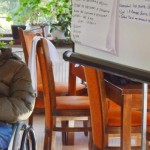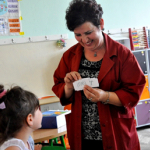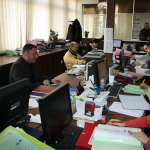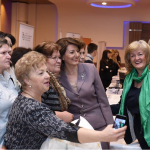
Raspberry cultivation is a fast growing and lucrative business in Kosovo. This is very good news in a country that has one of the highest unemployment rates and one of the lowest rates of exports in Europe.

For the June 2014 National Assembly elections, USAID, through its Increasing Inclusion and Mitigating Violence in Electoral Processes project, fielded 230 PwD to monitor access in all facets of the electoral process. This included not just voting on Election Day, an achievement in itself, but a landmark program—the first of its kind in the world—to also monitor the preceding political campaigns. The project is implemented in partnership with the International Foundation for Electoral Systems and two local organizations, HandiKOS and the Kosovo Democratic Institute.

Thousands of primary school teachers in Kosovo are learning how to instruct their students more effectively and to rapidly determine if the lessons are being absorbed.

When Kosovo’s new decentralized judicial structure went into effect in January 2013, courts had a better model for efficiency moving forward, but faced an uphill battle in tackling the many cases left unresolved under the old system.

When women are elected, they become advocates for issues that affect everyone: better health care, child care and education, among others. In Kosovo, like elsewhere, women often struggle to make their voices heard in predominately male organizations, where their contributions can be dismissed as nothing more than meeting a quota.








Comment
Make a general inquiry or suggest an improvement.